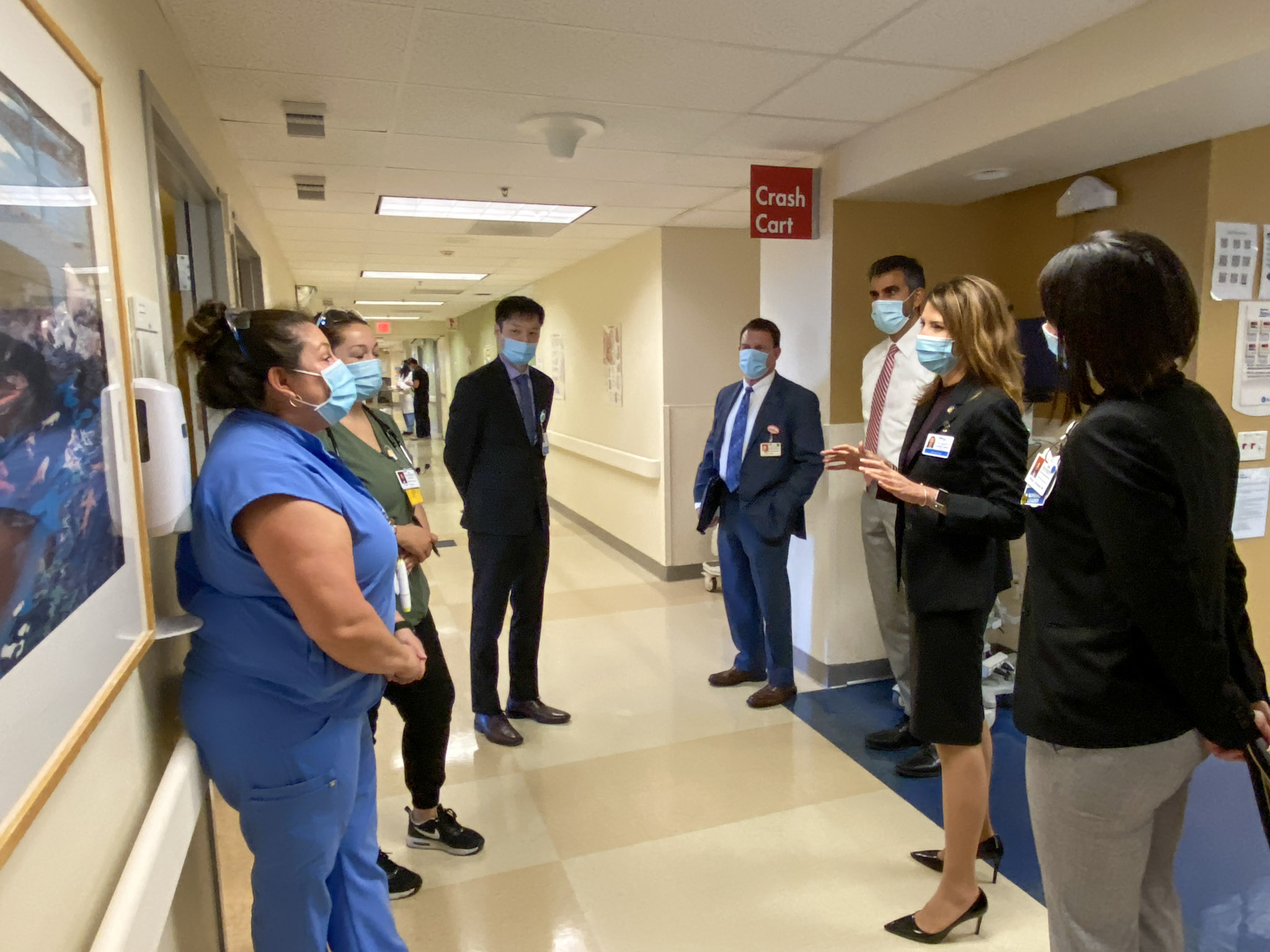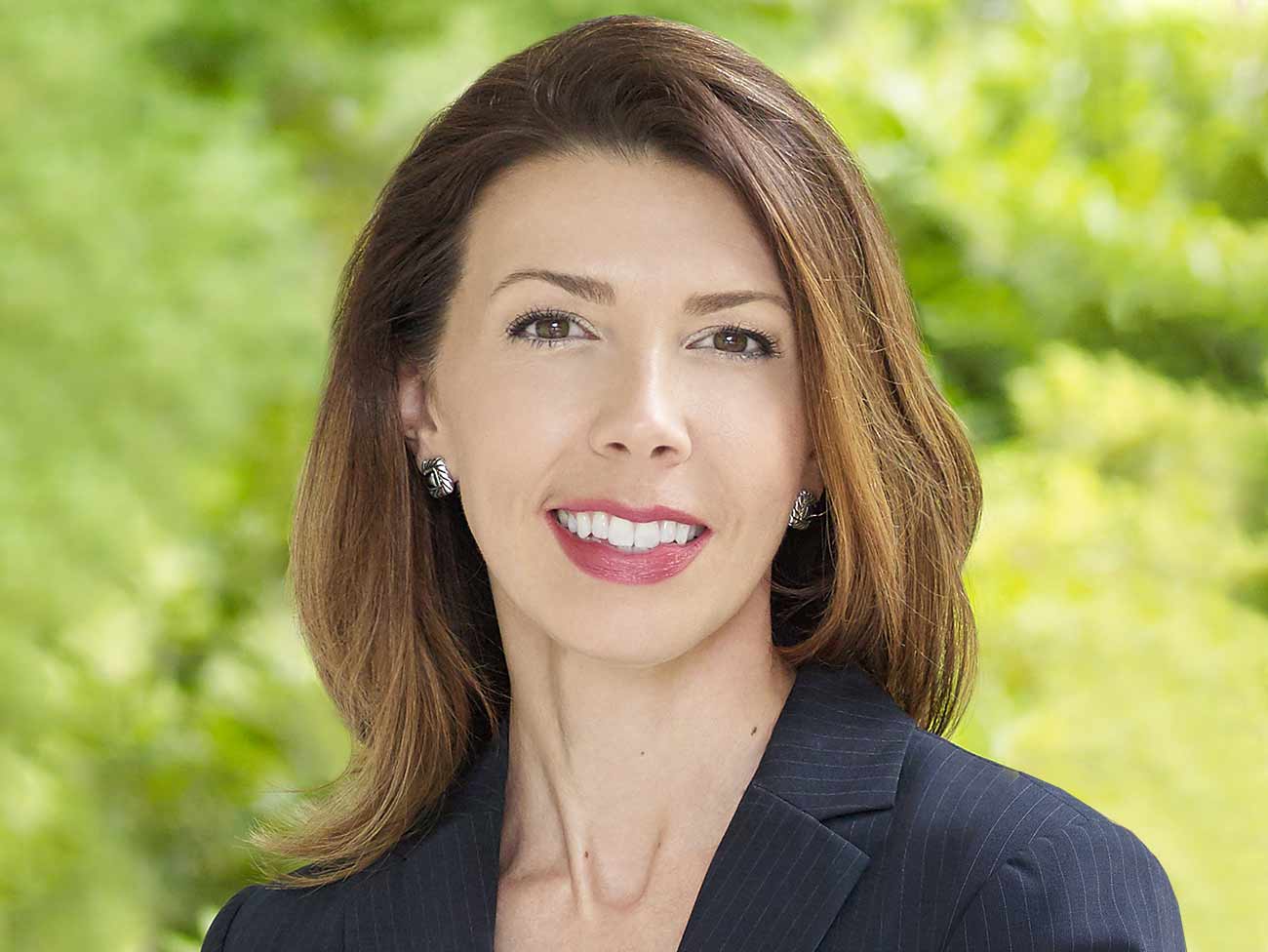‘A wild ride full of adventure, heroism, joy, and challenges you will never anticipate’
An interview with 2021-2022 ACHE Chair Carrie Owen Plietz, FACHE (MHA ‘00)
Since graduating from the MHA program in 2000, Carrie Owen Plietz has made an indelible impact on the field of health administration. In November 2020, she was named President of the Kaiser Foundation Health Plan and Hospitals Northern California region, which provides care to more than 4.5 million members through 21 hospitals and more than 250 medical offices.
In March, she began her term as Chair of the American College of Healthcare Executives (ACHE). We caught up with Carrie this fall as she reflected on the industry, women in healthcare, and the challenges and opportunities that lay ahead after the pandemic.
What do you see as the biggest opportunities and challenges facing the health administration profession?

Healthcare is often times viewed as a slow-moving industry; however, this pandemic has taught us a lot about how quickly we can move in times of crisis. We'll need to continue to facilitate rapid change, quickly assess what did or didn't work, and spread best practices. Performance improvement and innovation are best done when listening to what our consumers want/need, tapping into our workforce to come up with great ideas, and quickly removing barriers that get in the way or slow down progress.
What's the role of ACHE and healthcare organizations in moving the profession toward a more inclusive understanding of standards of professionalism?
What drives us at ACHE is our vision to be the preeminent professional society for leaders dedicated to advancing health. What defines us is our mission – a commitment to advancing both individuals and the field of health care leadership.
We are committed to ethics and our values of integrity, lifelong learning, leadership, and diversity and inclusion. By playing an active role as a catalyst for the field, connector for the leadership community, and a trusted partner for our members throughout their careers, we are dedicated to moving the profession toward a more inclusive understanding of professionalism.
Women are underrepresented in healthcare leadership positions. As a woman in a high-level leadership role, what advice would you offer women entering the field?
 It is incredibly gratifying to make a difference in the health and lives of others. My advice: spend some time assessing what brings you joy, ensure you are clear on your own personal values, and know what you want from a role — not what other people want or expect.
It is incredibly gratifying to make a difference in the health and lives of others. My advice: spend some time assessing what brings you joy, ensure you are clear on your own personal values, and know what you want from a role — not what other people want or expect.
Make a plan to achieve your goals. Where are you today? What’s your next step? What do you envision as the trajectory of your career path over the next 5, 10, 15 years? Identify organizations that share your personal values as places you might want to be part of your professional journey.
Finally, always remember you do not have to walk on water, all you have to do is swim across.
As a healthcare leader, what have been your greatest takeaways leading through a pandemic?
It’s been a remarkable 11 months for me since joining Kaiser Permanente last November. Being given the opportunity to not only lead Kaiser Permanente Northern California, but to do so during a global pandemic has truly been an awesome challenge.
While there have been multiple learnings for me and my team, the greatest takeaways for me have been the importance of being a mission-driven organization and just how critical it is to be nimble, to innovate, and to demonstrate leadership in the midst of a crisis.
The people of Kaiser Permanente Northern California have a remarkable and unwavering commitment to its mission – to improve the lives of the communities it serves.
As the pandemic continues to change the world around us, our mission has never ceased to serve as a North Star, a guiding light keeping us in the fight to heal our sickest patients and to ensure we get as many of our community members vaccinated as possible.
The ability to stretch and flex to meet the health care needs of our members and local communities in what has been a constantly shifting landscape over the past 20 months of the pandemic has been incredibly important. When demand for COVID-19 testing far outpaced supply in early 2020, we moved quickly to significantly expand our testing capabilities. The expansion included building a new $14 million testing lab in Northern California. The lab opened in May 2020 and was built in less than two months. It can process up to 20,000 tests per day.
Early in the pandemic, Kaiser Permanente was able to swiftly move to offering our members telehealth appointments as an alternative to in-person care. From March to November 2020, our physicians conducted nearly 3.7 million video visits, compared to approximately 100,000 for all of 2019. This remarkable work around telehealth is a terrific example of Kaiser Permanente’s ability to innovate on-the-fly to provide members and patients with excellent care and service, while also supporting COVID-19 mitigation efforts to combat the spread.
Understanding that getting as many people as possible vaccinated is the best way to end this pandemic, Kaiser Permanente led the way in its decision to mandate vaccinations for all our physicians and employees in August, which was closely followed by a similar mandate for all health care workers by the State of California. Our leadership in implementing a vaccination mandate shaped the conversation at both a state and national level – ultimately helping to increase vaccination rates across the board.
You serve on the VCU Health Administration Alumni Advisory Council. Why is it important to you to remain engaged with the program as your career has progressed?
Throughout my career I have been supported, encouraged, and motivated by so many individuals and organizations connected to VCU. The university has not only provided me with a great education and a strong springboard to my career through their Administrative residency program, but also opportunities to build lifelong friendships with fellow students and professors.
I have also had the pleasure of being a preceptor to students during their own residency training and supporting them in their careers, where I have learned as much from them as they have from me. Mentoring and being on the Alumni Advisory Council are just two small ways for me to give back to VCU.
What advice would you give students who are entering the healthcare field?
Make sure you are entering the profession for the right reasons. Are you called to care for others, improve our systems, and is healthcare your passion?
Healthcare leadership is not an easy path. From the inherent flaws that remain to be solved to the need to move toward a new model of preventative care, a successful career in health care requires incredible dedication and personal commitment.
It is a wild ride full of adventure, heroism, joy, and challenges you will never anticipate and one that has the power to save lives. Be humble, ask for help, raise your hand for the assignment no one wants, fix a problem no one has spent time to fix, make a difference — and always, always put the patient at the center of every decision.
Build your internal and external network and work at it at every step of your career. VCU Alumni always have an open door.